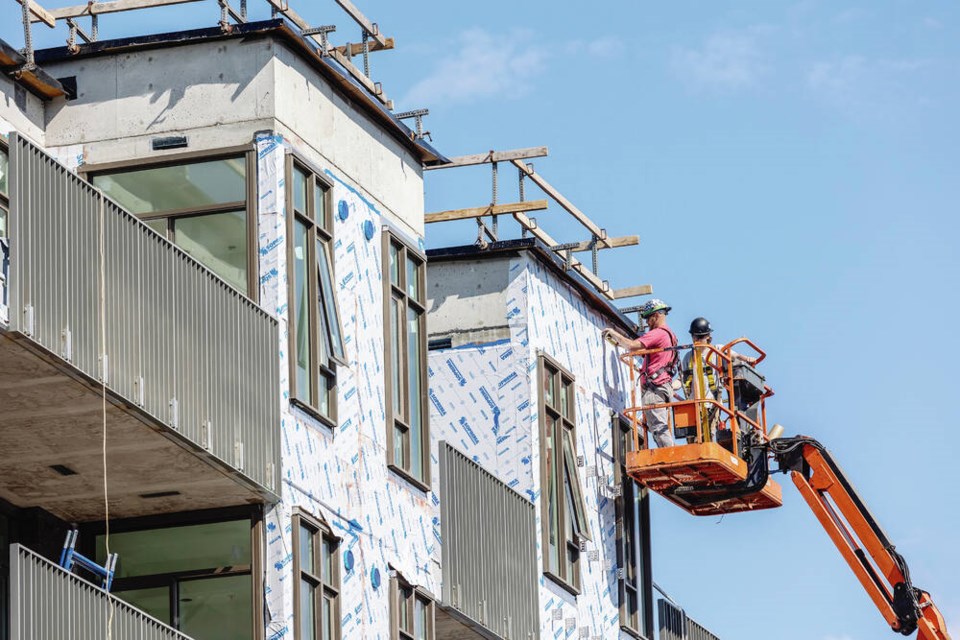Newly built homes in Nanaimo won’t be allowed to have natural gas as a primary heat source as of July 1, 2024.
Following the lead of other B.C. municipalities, such as Saanich and Victoria, Nanaimo council this week approved speedy implementation of the province’s zero-carbon step code, a B.C. Building Code update to limit greenhouse gas emissions from new construction.
The province has set 2030 as the goal for the zero-carbon rule in new buildings, but Nanaimo council agreed in a narrow five-four vote to accelerate that timeline.
The move is expected to affect the approximately 160 new single-family homes built annually in the city, staff said. It will not affect existing homes and other buildings already using natural gas.
As of May of this year, the B.C. Building Code requires 20 per cent better energy efficiency for most new buildings.
Reaction to the move in Nanaimo was split.
Chris Bowen, manager of Pioneer Fireplace in Nanaimo, spoke at council against it, saying it would reduce revenue by 30 per cent for the 45-year-old family-owned business, and lead to job losses.
“There are many other businesses that quite simply would not survive,” he said.
Customers have bought natural gas fireplaces to have a backup heat source during the Island’s frequent power outages, said Bowen, who called for a stakeholder group to be set up to advise council.
But Nanaimo resident Adrienne Fraser urged council to adopt the 2024 implementation. “If we can move faster by a few years, we should do it,” she said. “When something is harmful to the public, whether it is speeding, driving under the influence, or polluting the atmosphere, it ceases to be a personal choice and becomes a public issue.”
Saanich and Victoria were the first municipalities in the province to adopt zero-carbon step code regulations.
Others that have taken steps to combat emissions from new buildings include Central Saanich, Whistler, North Vancouver, West Vancouver, Squamish and Port Coquitlam.
Early adoption of the regulations was recommended by Nanaimo staff, who called it a key step in achieving the city’s community-wide emissions targets: 50 to 58 per cent below 2010 emissions levels by 2030 and 94 to 107 per cent below 2010 levels by 2050.
In 2017, buildings in Nanaimo accounted for 31 per cent of community emissions, which total about 500,000 tonnes per year, the report said.
New buildings in the city that rely on electricity as the major heating source are easily meeting new provincial goals, but new builds using mainly natural gas are typically not able to meet the higher standards, the report said.
Coun. Tyler Brown voted in favour of the 2024 date, saying individuals, all levels of government and organizations need to take responsibility to reduce emissions to avoid catastrophic events such as forest fires, extreme weather and flooding.
“If we want to be sincere about the [emission-reduction] targets we set, this is a necessary policy that we need to put in place.”
Brown said he has heard builders and developers say the target is feasible.
Coun. Hilary Eastmure, who also backed the accelerated timeline, said change is hard but “it is about leadership and doing our part and doing what is best for future generations.”
Mayor Leonard Krog opposed earlier implementation, however, saying he was not convinced it would be worth the effort and “potential disruption at a time when we are still facing a great lack of housing.”
Coun. Ian Thorpe also opposed the sped-up timeline, saying some Nanaimo residents have told him that they have lower heating costs with gas and value having it as a backup.
“I don’t believe we should move quickly to take away home-energy choices from the consumer.”
>>> To comment on this article, write a letter to the editor: [email protected]



